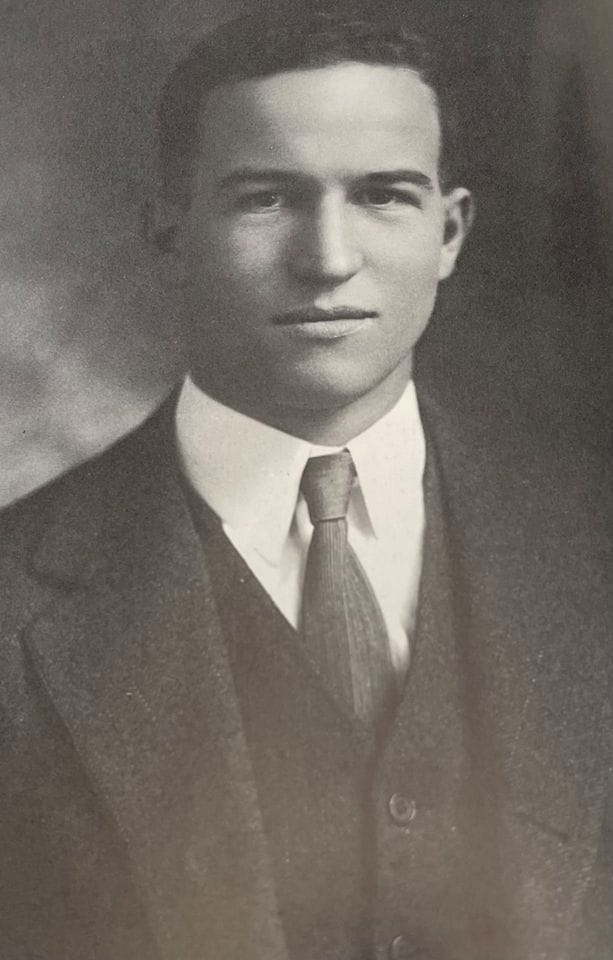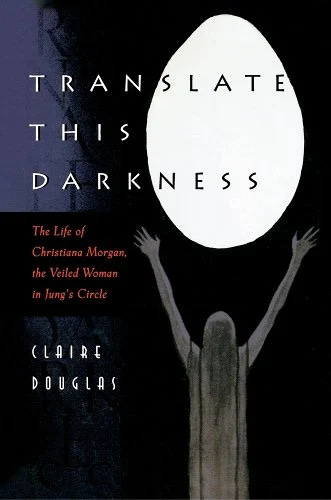The Lost Legacy of a Psychology Pioneer: A Story of Insight Hidden in History
Christiana Morgan and Carl Jung
It’s 1926 in New York City, and 28-year-old Christiana Morgan, a forward-thinking, sexually restless wife and mother, has made a decision that will alter the course of her life—and history.
She packs a bag for Zurich, where she plans to join Carl Jung’s circle and insist on becoming his patient. Surely, if anyone can untangle the mess she’s found herself in, it’s the renowned psychoanalyst.
Though she and the celebrated doctor Henry “Harry” Murray have yet to act on their accelerating desires, the intensity of their connection hums with such ferocity it feels impenetrable—an invisible force that isolates their respective spouses, marooned on the other side of a bridgeless moat.
Christiana seeks answers about her tangled romantic situation, hoping to salvage their marriages—and their profound intellectual respect for one another—before everything unravels. What she doesn’t know is how her intimate access to Jung will provide him with limitless material to mine the depths of her divine unconscious, ultimately serving both Jung and Harry Murray more than it will ever serve her.
Born in 1897 into privilege, Christiana Drummond Councilman was an unlikely debutante. Her parents were Boston Brahmins: her father, William Councilman, a Harvard physician; her mother, Isabella, from one of Boston’s most prominent families. Yet privilege offered no solace. Her mother rejected her for not being the son she’d hoped for, while her father’s aloofness left her yearning.
This scrappy and rebellious, demonstrably intellectual little girl, who pushed back against traditions, was often punished for speaking her mind. On her best days, she felt incompatible with the times. On her worst days, she felt despondent.
This rejection shaped Christiana’s restless spirit. As a child, her rebellion against traditional gender roles and her family’s expectations led to frequent punishment, including being locked in a dark closet. There, she developed elaborate fantasies as a means of escape—mythic tales that became the foundation of her lifelong fascination with folklore and legend.
She wouldn’t understand until she was grown that it wasn’t simply male attention she craved but a claim on space for herself in a world reserved for men. - Translate This Darkness
Her deeply gothic imagination and sensitive nature made her feel alienated from the world around her. She longed not only for male attention but for something deeper: the freedom and agency reserved for men. Her internal dissonance led to the first of many clinical depressions.
By 20, Christiana had married William Morgan, a gentle banker she’d met at a dance. Her sexual appetite was intense, and their early marriage satisfied her desires—until an unplanned pregnancy left her repelled by motherhood. She found her growing belly grotesque, the birth violent, and the baby, Peter, a source of melancholic distress (what we now recognize as postpartum depression).
Now in her late twenties, Christiana is disillusioned with marriage, motherhood, and the life expected of her. She fills the void with art classes at the Art Students League and the writings of Carl Jung. His work resonates deeply, unlocking a sense of purpose: to pursue the unconscious self.

Her fascination with Jung’s ideas about the unconscious and libido leads her to seek not only answers but freedom. She begins to live with the reckless abandon of a man, taking lovers and asserting her independence. Among them is Mike Murray, a charismatic New Yorker, but it is Mike’s older brother, Harry, who will consume her completely.
Harry, like Christiana, is fascinated by Jung’s archetypes and shadow work. Their connection is immediate and consuming, but also destructive. They see in each other the parts of themselves they cannot face, mistaking this familiarity for destiny.
In 1926, after a year of dangerous entanglement with Harry, Christiana travels to Zurich with her husband to become Jung’s patient.
Jung teaches her to enter trance states, where, quite quickly, she accesses the subterranean region of her psyche and begins recording her visions—archetypes of the feminine that startle Jung with their originality. Her visions are unprecedented.
The visions that live inside of her strike him as a primal archetypal world. The archetypes she resurrects from her unconscious mind are not male, but female, and this is beyond the scope of anything yet seen. The images portray a modern femininity, of a woman unafraid of her own libidinous nature, of her innate power. That these prototypes originate from the center of one person is remarkable—does the entire unconscious world live inside of Christiana Morgan?
Her visions are so frequent and realistic, they bleed into her daily reality—they are from her and they are of her. She is every feminine archetype that she imagines. Where she begins and the images end is a blurring that becomes her life.
Over nine months, she records hundreds of visions, text, and paintings from her divinations. They take up three volumes, totaling 1,000 pages. She calls them her “Analytical diaries.”
But Christiana isn’t the only one recording and documenting her visions. Jung is also. What he and Harry do with Christiana’s work will forever alter the trajectory of her life—and psychology itself.







